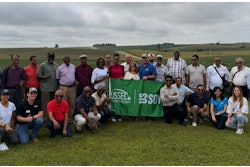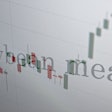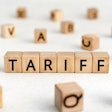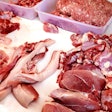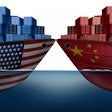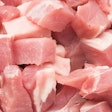
For the European Dairy Association (EDA), adoption of the EU-Mercosur Free Trade Agreement (FTA) demonstrates the commitment of members of both trading blocs to free, fair, and sustainable trade. As a result of the agreement, access to each other’s market will be enhanced, supply chains diversified, investment fostered, and cooperations on sustainable development will be strengthened.
EDA secretary-general Alexander Anton sees the adoption of the FTA as a decisive step.
“This represents a major breakthrough, especially in today’s challenging trade environment, highlighting the EU’s trade ambitions the success of its negotiations, and will be sure to bring economic growth and
resilience to Europe,” he said.
Citing figures from the European Commission (EC), the EDA refers to a potential annual increase of close to 50% in annual exports of agri-food products from the EU as a result of the new FTA with Mercosur members.
Current full members of the Southern Common Market — or Mercosur — are Argentina, Bolivia, Brazil, Paraguay, and Uruguay.
In terms of dairy products, these nations have strong local industries, with the sectors ranging in self-sufficiency from around 98% to 280%.
Under the FTA, both parties will have much greater access to each other’s markets, without tariffs or non-tariff barriers. For example, under the new agreement, the tariff-free quota (TRQ) for EU cheese exports to Mercosur countries will rise by a factor of 10 to 30,000 metric tons (mt).
Despite the easing of trade restrictions, the EDA states that legal safeguards will remain in place to protect more than 350 European food products.
“By opening new markets in South America, the agreement ensures a stronger, more resilient, and globally competitive European dairy sector,” concludes the EDA.
Critical questions remain for other European farmers
Acknowledging the EC’s plans for securing safeguards, the EU farming and agri-cooperative organization Copa-Cogeca sees the EU-Mercosur FTA as a threat to sustainability and fair competition to its members. In particular, the body highlights a lack of clarity over how the Mercosur partners will vote on and enforce the safeguarding mechanisms proposed by the EC to protect its producers.
Furthermore, it highlights the as-yet unaddressed disparities in production standards and sustainability challenges between the blocs.
For Copa-Cogeca, the ratification of the EU-Mercosur FTA comes at a time of great uncertainty for EU agriculture, with decisions on the future Common Agricultural Policy (CAP) and the Multiannual Financial Framework (MFF) still to be finalized. Additionally, the organization states that promises from the EC of a “safety net” for European producers are vague and lack credibility.
In view of these concerns, it is calling for national parliaments to be consulted to ensure that the FTA is not ratified for purely political reasons.
“Our sector’s sensitivities, sustainability efforts, production standards, and the trust of citizens must be fully respected and protected,” Copa-Cogeca says. “This agreement fails to meet these requirements. We therefore urge the European Council and Members of the European Parliament to reject the EC’s proposal.”
European reactions to EU-U.S. Framework Agreement
For Copa-Cogeca, the EU-U.S. trade agreement concluded in August can be summed up as “Brussels concedes, agriculture gets nothing.”
It says that the joint statement delivers no relief for the European agri-food sector, despite promises of potential “zero-for-zero” tariff arrangements for some of its agricultural products.
According to the organization, the agreement allows easier access to the EU market for U.S. agri-food products, while EU producers face an increase in tariffs to 15% on key exports to the U.S.
At the time, Copa-Cogeca called on the EC to continue negotiations with the U.S. to lower tariffs on these key exports, and to carry out urgently an assessment of the potential impacts on the EU agricultural sector.
In contrast, the EDA welcomed the new EU-U.S. agreement, saying that it offered greater predictability as a result of the removal of the threat of escalating tariffs on European dairy product exports. On the other hand, it foresees that European exporters will continue to face significant competitive disadvantages on the American market.
At the end of September, a delegation from the EDA is scheduled to meet U.S. counterparts in Washington. Among the aims of the meeting is to reach agreement over safeguards to balance trade opportunities for both sides.




